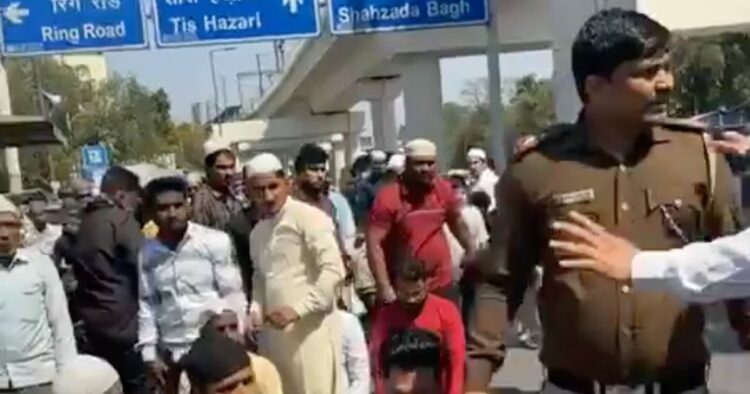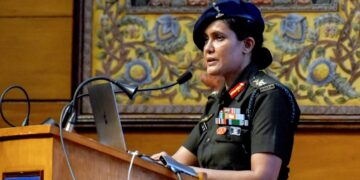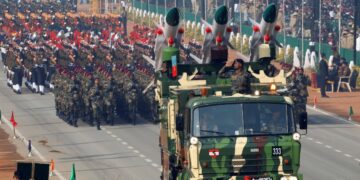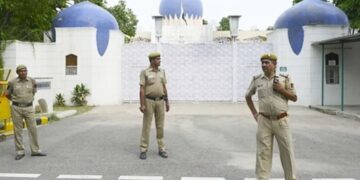In a recent altercation caught on camera, tensions between law enforcement and a Muslim gathering in Delhi have sparked controversy and raised questions about public safety and religious freedoms. The incident, initially portrayed as a clash between police and protesters, has since evolved into a complex narrative involving allegations of assault, mob violence, and public opinion.
The video in question, which surfaced on social media platforms, depicts a scene of chaos as a group of individuals confronts police officers in the Inderlok area. Contrary to initial reports, Deputy Commissioner of Police (DCP) North Delhi clarified that the footage actually dates back to Friday, 8th March, not Saturday as previously claimed. The incident, according to DCP, occurred when locals escorted police officers to a police post amidst a scuffle that ensued.
This is wrong information. The mentioned SI is not present in this video.
The video is not of yesterday (Saturday) but of Friday, 8th March, when protestors had gathered in Inderlok. Locals escorted police officers to the police post after which scuffle took place.@CPDelhi https://t.co/pEHesmoySW
— DCP North Delhi (@DcpNorthDelhi) March 10, 2024
However, what transpired next has ignited a heated debate. The video shows a mob confronting the police, with individuals heard shouting derogatory remarks and inciting violence against the officers. Despite this aggression, the DCP’s statement notably omitted any mention of the attack on the police by the mob, raising eyebrows among netizens who questioned the police’s stance on the matter.
Furthermore, the controversy surrounding the incident is compounded by a separate video that emerged on 8th March, showing a police officer kicking a man who was among a group offering namaz on the road. While the officer’s actions were met with suspension and disciplinary measures, the broader context of the situation reveals a pattern of disregard for traffic regulations and public safety by those engaging in public prayers.
It is essential to recognize the challenges faced by law enforcement in maintaining order while respecting religious practices. The decision to suspend the officer involved in the kicking incident underscores the Delhi Police’s commitment to accountability and upholding the rule of law. However, the selective outrage and condemnation directed solely at the police overlook the underlying issue of public safety and the need for mutual respect and cooperation within society.
Critics of the police’s response have pointed fingers at what they perceive as a biased narrative that downplays the aggression directed at law enforcement. The dismissal of the incident as a mere “scuffle” fails to acknowledge the gravity of the situation and the inherent risks faced by officers in the line of duty.
So, Delhi Police aka Denial Police accepts that video is indeed from Inderlok area and shows Namazis, the lords of Indian roads, manhandling Police officers. Few years back when they got into scuffle with Lawyers, Delhi Police employees staged a protest. But these are Namazis so… https://t.co/7p3B3ib5Xh
— Divya Kumar Soti (@DivyaSoti) March 11, 2024
In light of these developments, it is imperative to reevaluate the discourse surrounding religious freedoms and civic responsibilities. While individuals have the right to practice their faith, it should not come at the expense of public order and safety. The Delhi Police’s actions, however contentious they may seem, reflect a commitment to upholding the law and ensuring the well-being of all citizens.
In conclusion, the recent incidents involving clashes between police and individuals offering namaz on the road highlight the complexities of balancing religious freedoms with public safety. Rather than vilifying law enforcement, it is essential to engage in constructive dialogue and find common ground that respects the rights of all parties involved. Only through mutual understanding and cooperation can we foster a society where religious expression coexists harmoniously with civic responsibilities.

















Comments